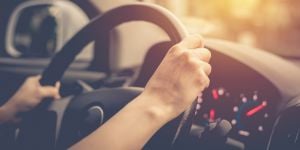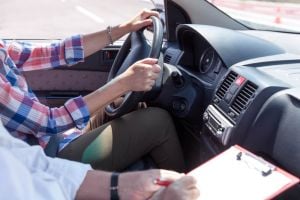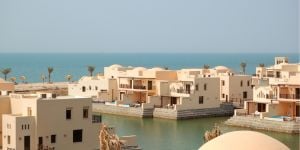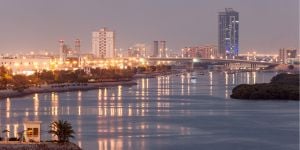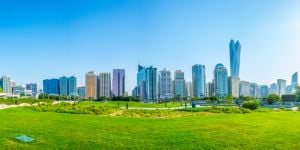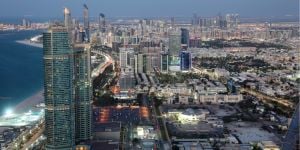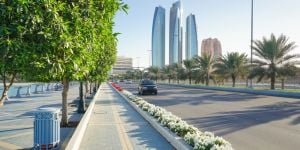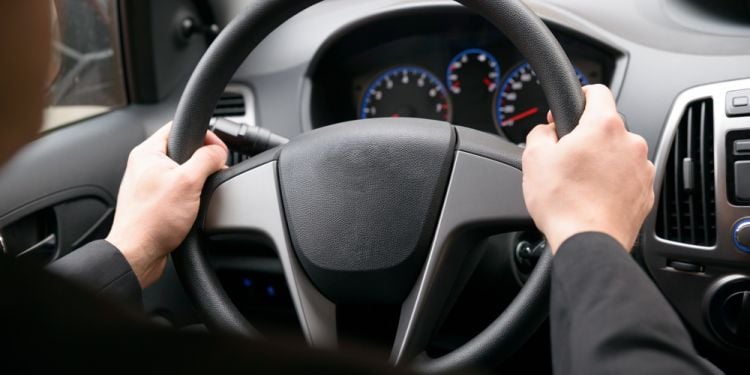
All road accidents, even a minor scratch, must be reported to the police. In case it happens to you, do not move your car, and if you have a camera with you, take some pictures of the situation. Immediately call the police, inform them about the occurrence, give them your location and ask them for instructions, if needed. To have your car repaired and the insurance money reimbursed, you have to have a police accident report. Even though the procedure seems to be troublesome and unnecessary, it is instituted to prevent hit-and-runs.
ACCIDENTS
EMERGENCY PHONES
| POLICE | 999 |
| AMBULANCE | 998 |
| FIRE | 997 |
CALL THE POLICE
| Ras Al Khaimah | 07 2351111 |
| Abu Dhabi | 02 4196666 |
| Dubai | 04 2692222 |
| Sharjah | 06 5381111 |
| Ajman | 06 7424999 |
| Umm Al Quwain | 06 7666666 |
| Fujairah | 09 2229884 |
| Al Ain | 03 7073555 |
BLOOD MONEY (DIYA)
Be careful when driving in areas that are more rural as many animals, particularly goats and camels, often enter the road and create potentially dangerous situations. If you happen to hit any domestic animal, you will have to pay blood money (diya) to its rightful owner. The sum usually covers the cost of purchasing a new animal; however, you can expect this animal to be the best in the herd. In the unfortunate case of a tragic accident, when humans are killed, diya must be paid to the family members. The amount is usually fixed and it is 200,000dhs for both a man and a woman (until 2009, it was only 100,000dhs for a woman). However, it can also be left to the judge who is in charge of the case to decide the sum of the blood money.
CAR BREAKDOWN
A car breakdown is always a problem, especially if you are stuck in the heat or in a remote area. It is therefore important to take preventive measures. Essential things to check are a coolant to avoid overheating, tyres, batteries and a sufficient amount of petrol in your tank. Always have drinking water and a mobile phone with you. Rental companies will assist you if you are one of their customers. Otherwise, call the police if the situation is serious, or contact one of the car recovery providers.
| Arab Automobile Association Dubai | 800 4900, www.aaauae.com |
| Allulu Transport | 055 7437817, 050 3724514 |
| Classic Transport | 07 2334544, 050 5792522 |
DRIVING STYLE AND RULES
In the UAE, people drive on the right side of the road. As a driver in Ras AlKhaimah you will have to get used to the fact the roads are governed by the roundabouts, and that there is limited amount of cross-roads, therefore U-turn system is common. There are no borders or checkpoints between the seven emirates and you can move freely around the country. It is mandatory to fasten your seatbelt in the front seats. Children under the age of 10 are not allowed to occupy the front seat; but it is quite common to see them in front, sometimes even on the lap of their driving parent. Officially, you are not allowed to use a mobile phone while driving, unless you use a hands-free system, but this rule is often not taken too seriously.
Driving in Ras Al Khaimah can be a crazy affair. With the increasing number of foreigners in the country came a variety in driving styles and techniques. Drivers often do not use their indicators, overtake from the right, break unexpectedly and ignore road rules in general. Some people test the limits of their car by driving fast and aggressive. Many cars in Ras Al Khaimah have tinted windows, making it impossible to make eye contact in order to communicate with other drivers or to predict other drivers' behaviour. You will also notice that drivers use flashing headlights to suggest you get out of their way. It does not matter that often you cannot pass over, or if doing so would be particularly dangerous; they will run you off the road to get in front of you. Some road signs are not respected or their meaning is interpreted freely, like the stop sign, which in practice is often seen as slow down only. Pedestrian crossings are considered a decoration, and are therefore, constantly ignored, unless there are traffic lights to accompany them. Driving can be hectic, and there is rather poor driving courtesy, thus paying increased attention to other motorists and being extra cautious is highly advised.
NOTE: Never leave unattended cars with running engines, especially with children around.
Never leave children and pets in the car, especially during the hottest hours of the day, because of danger of suffocation.
SPEED LIMITS & FINES
Roads are marked with speed limit signboards, and for most of them a 20km/h grace limit has been given. This means that if a signboard indicates the speed limit of 80km/h, the radar camera will click above 100km/h. Exceptions to that rule are Al Faisal Road and Corniche Road where the grace is only 10km/h. Cars are often equipped with an insistent alarm that sets off when the speed limit of 120km/h is exceeded.
Ras Al Khaimah, just like the other emirates, has a photo radar system that will register speeding cars. Speeding fines can be somewhere between 200dhs and 700dhs depending on the area, emirate, speed, or other undefined reasons. You can expect fines to become even higher in the future. If you are renting a car, possible charges will have to be paid upon returning of the car. Owners of private vehicles will have to pay their traffic fines during their annual car re-registration. For the time being, the payments can be made only in person and in cash. You may receive a text message on your mobile phone informing you about a fine.
You can also check if there are any penalties assigned to your car's registration plates at the RAK e-government website www.rak.ae, or the RAK Police website www.rakpolice.com, or by calling this police number: 60053333.
In all of the emirates, also a penalty points system assigns points for various driving offences. In theory, the points are accumulated to a driver and not to a car; however, it will always be assumed that the owner of the car is the person that committed the offence. Points expire after a year. If you collect 24 points within a 12-month period you may lose your driving licence for 3, 6 or 12 months depending on whether the points were collected for the first, second or third time. In case you collect the points for the third time, you will also have to redo the driving test.
PARKING
Presently, parking spaces are easy to find and free of charge in Ras Al Khaimah. However, you have to pay attention to the way you park your car, especially during the weekends at Manar Mall's car park. Crossing an indicated parking spot can result in a fine of 200 to 500dhs.
MAPS
Ras Al Khaimah does not have a lot of road signs and markings, and there are no detail maps available for the motorists. However, the layout of the city and its surroundings is relatively easy and within a few days, one can easily navigate around.Unfortunately,finding a specific place in more remote areas may bring you some trouble. If you are interested in visiting historical and cultural places in Ras Al Khaimah, you can use directions given in the Sightseeing section.
PETROL STATIONS
Petrol in the UAE is cheap; some people joke that it is even cheaper than water. It is sold by litre (although until 2010 it was sold by gallon) and the prices vary little at different petrol stations. Petrol costs around 1.52dhs per litre for 'Special' and 1.63dhs per litre for 'Super.' Self-service is very rare, and usually petrol stations' attendants would fuel up a tank and collect the payment, so you will not even need to step out of your car.
Petrol stations are quite well distributed all over Ras Al Khaimah; main stations such as Emirates Petroleum, ADNOC, ENOC are usually clearly visible from the road. However, make sure you have a full tank when travelling to remote areas. Remember also that there is no petrol station on the Emirates Road until Ajman. Most petrol stations offer other services such as car washing or oil changes. They often have a small shop with snacks and beverages. You may find a toilet there; however, the conditions vary from one station to another. Usually, stations are open 24 hours a day. Be aware that some stations do not accept credit cards, so keep some cash handy.
OFF-ROAD DRIVING
Off-road driving is always tempting, especially when you live in a country that offers such excellent conditions to venture off the beaten track. You can find tips and general information on this subject in the Activities section.
ADDRESSES
Streets names and road signs are usually written in English and Arabic. Expect to see the name of the street in a variety of spellings. Additionally, many streets have informal and commonly used names apart from their official versions, which were not given until few years ago. For example, Sheikh Mohammed bin Salem Road is commonly referred to as RAK Main Road (up to Clock R/A) and Al Faisal Road (from Clock R/A), or Sheikh Saqr bin Muhammad Al Qasimi Road as Oman Road (sometimes also Rams Road or Al Nakheel Road). Addresses and directions are given by reference to landmarks such as hotels, distinctive buildings, shops or roundabouts.
We do our best to provide accurate and up to date information. However, if you have noticed any inaccuracies in this article, please let us know in the comments section below.
